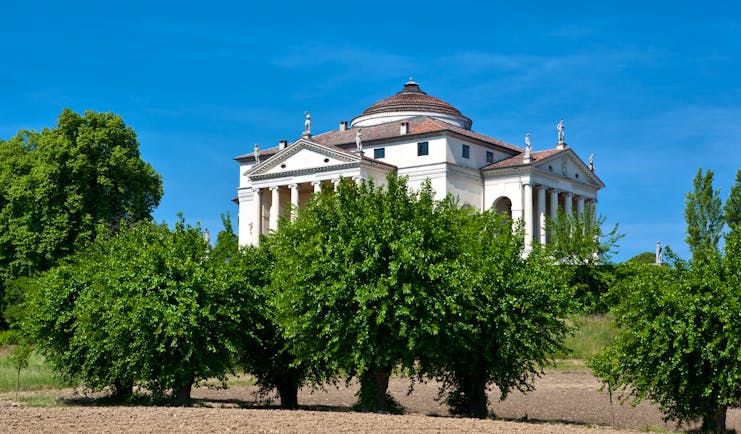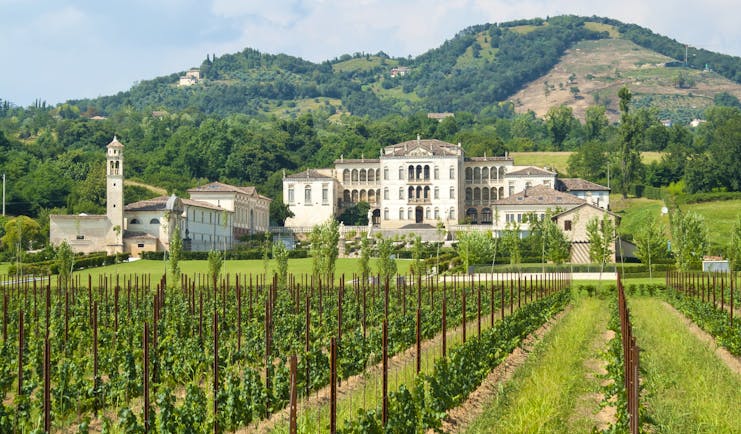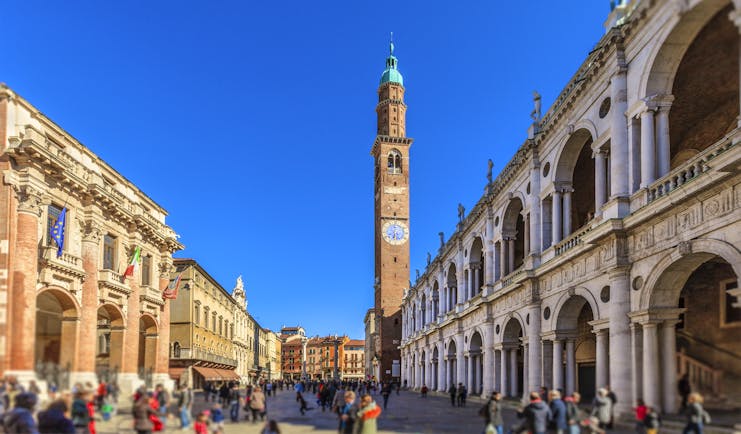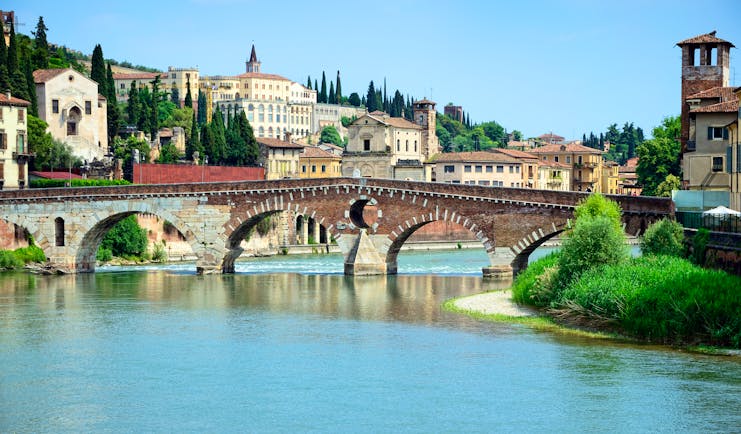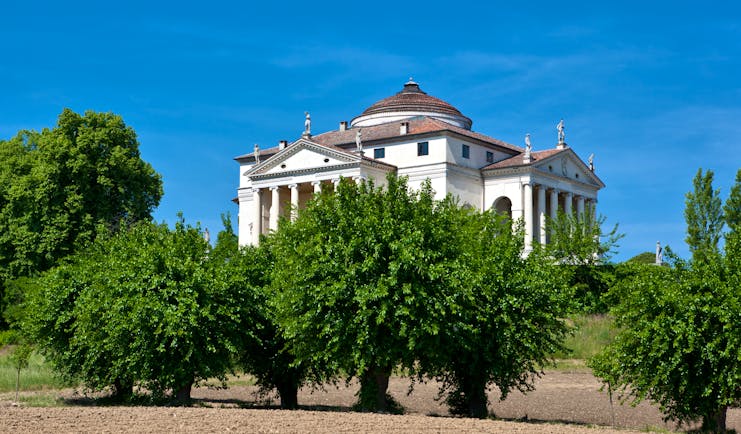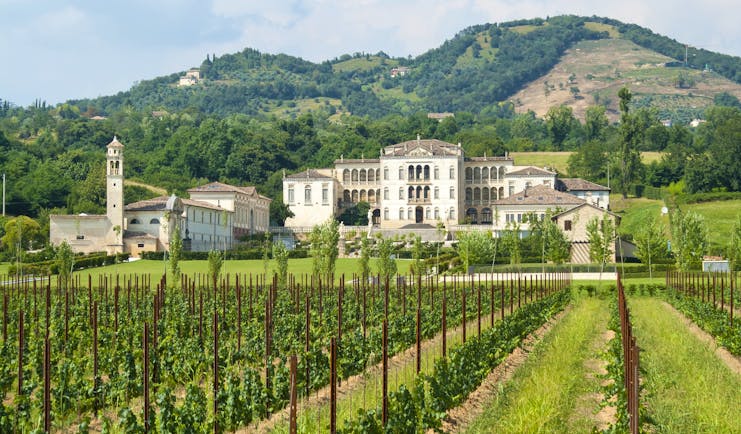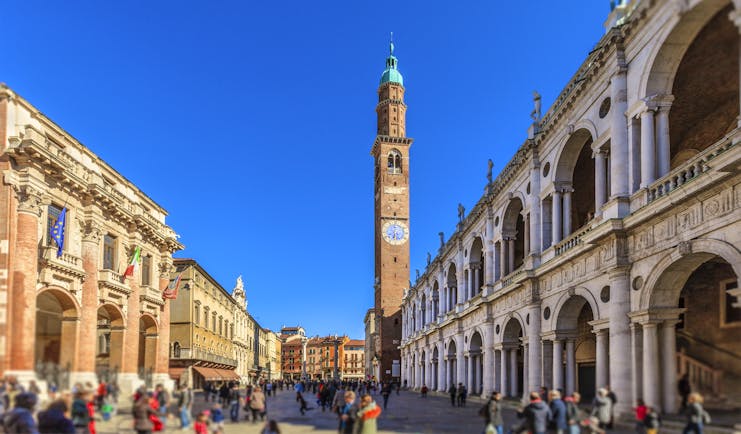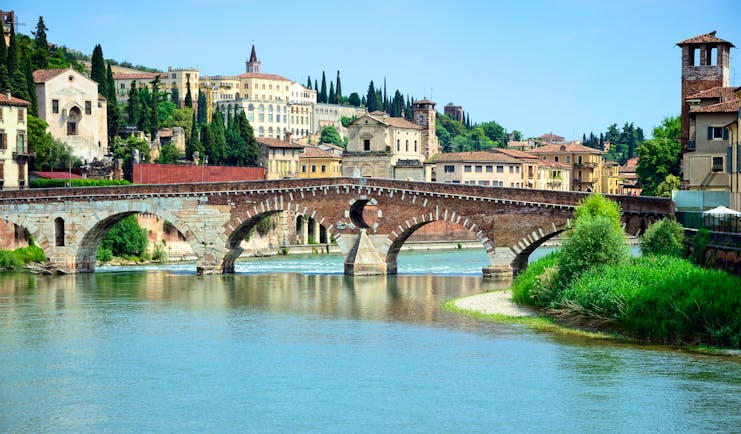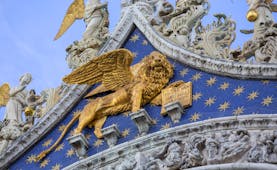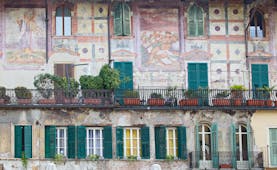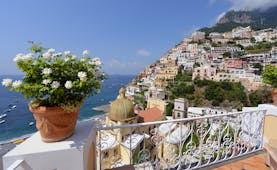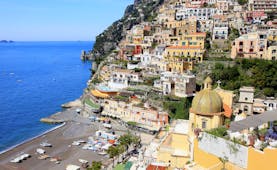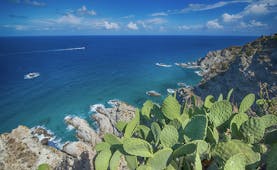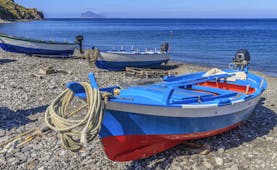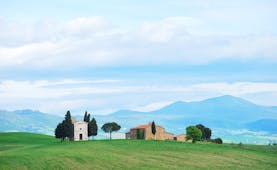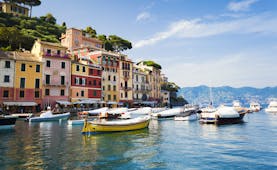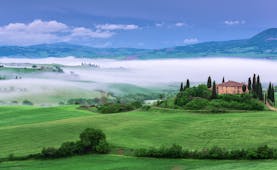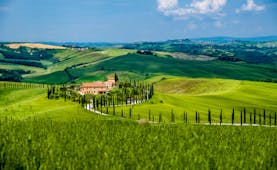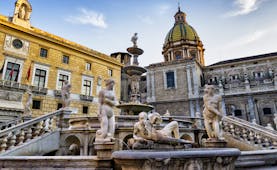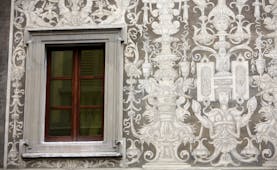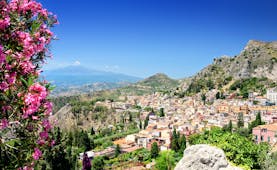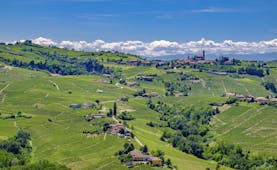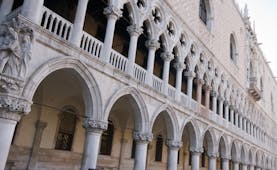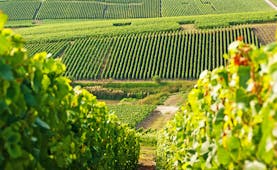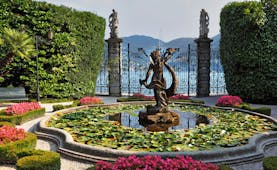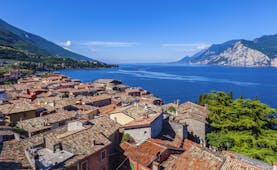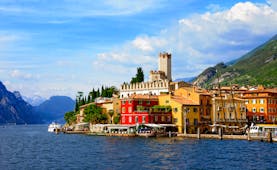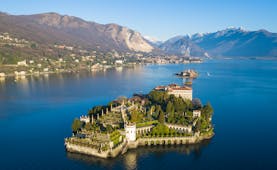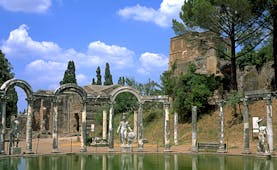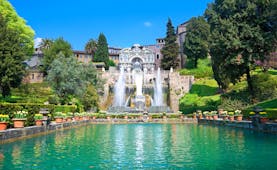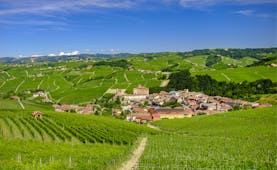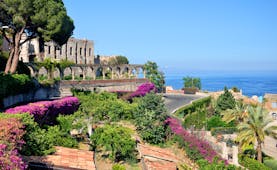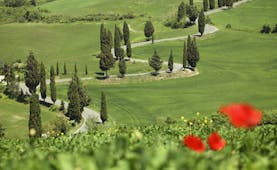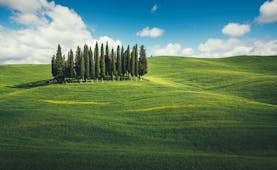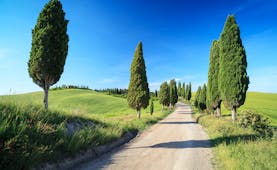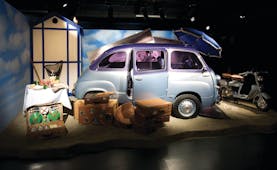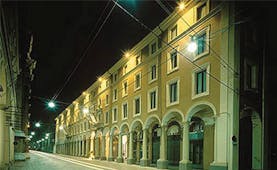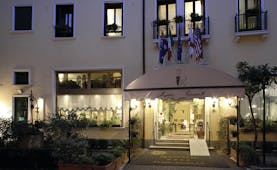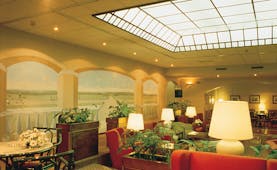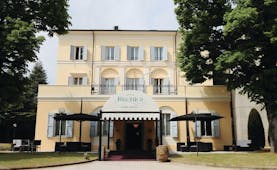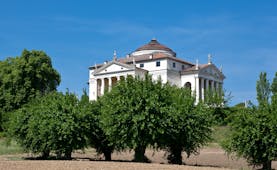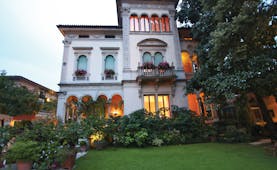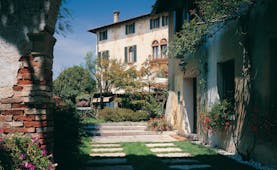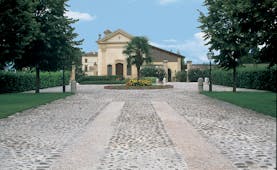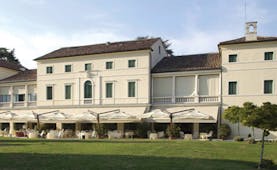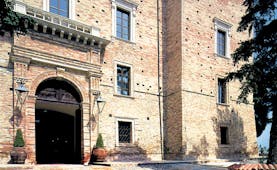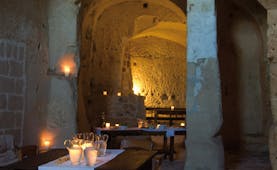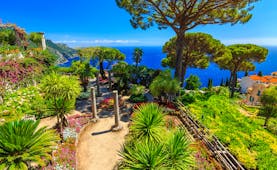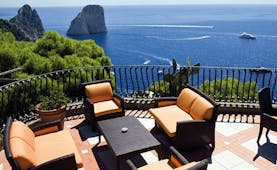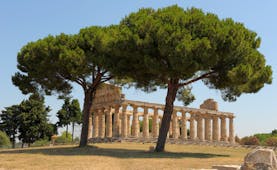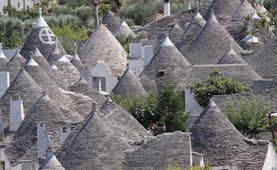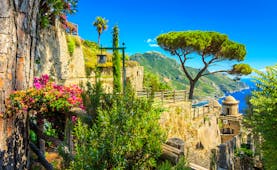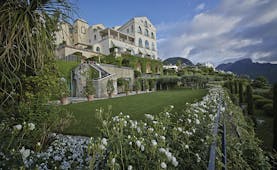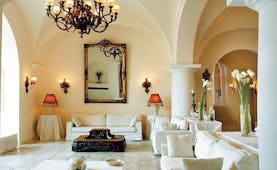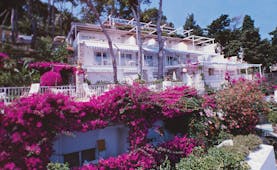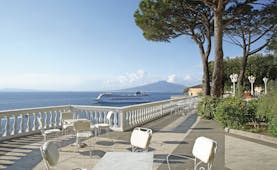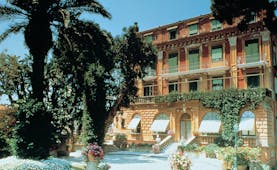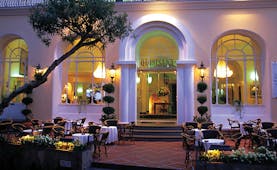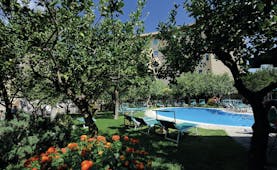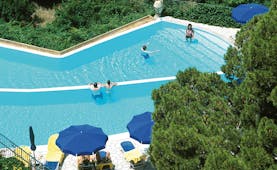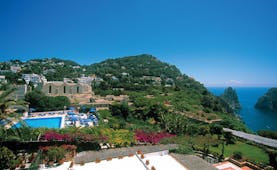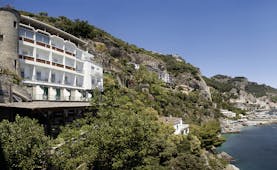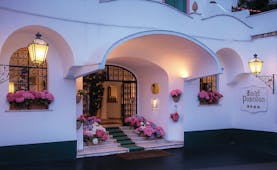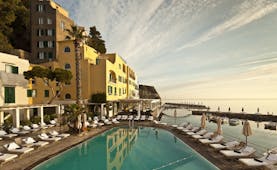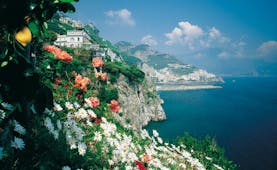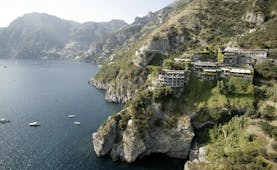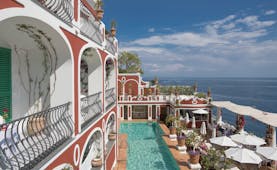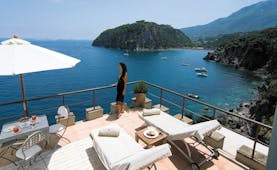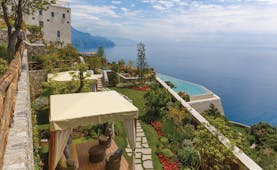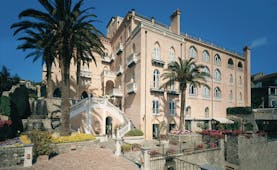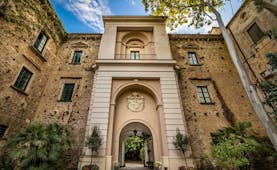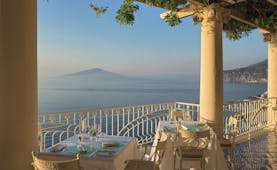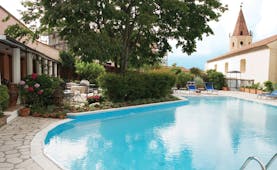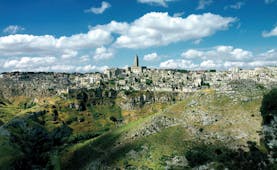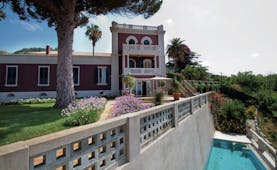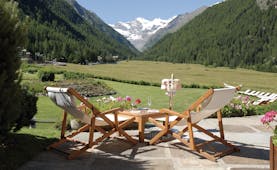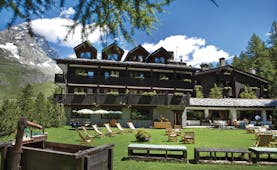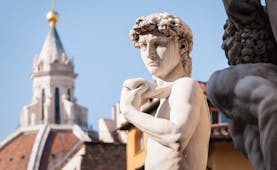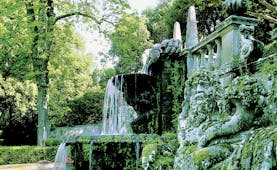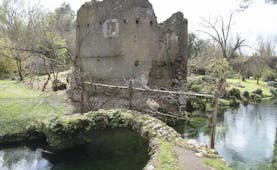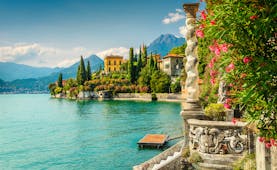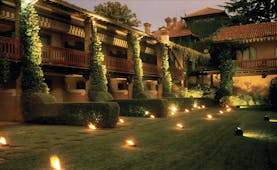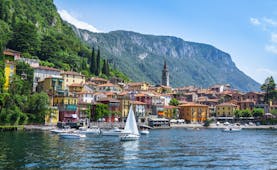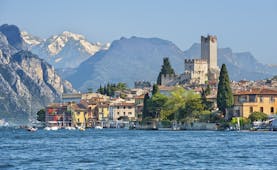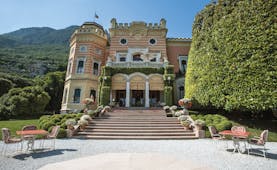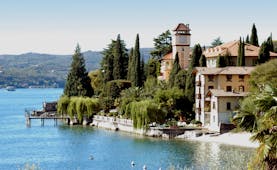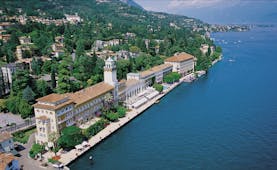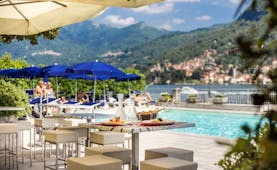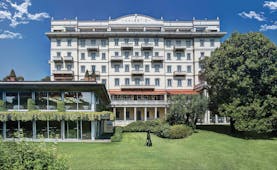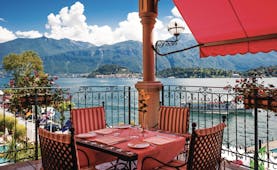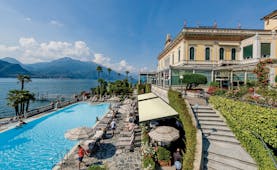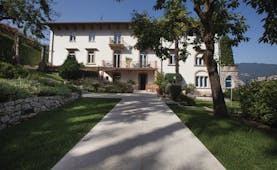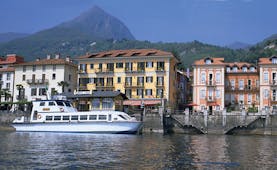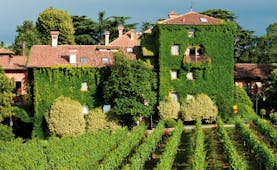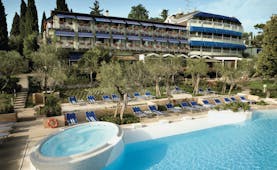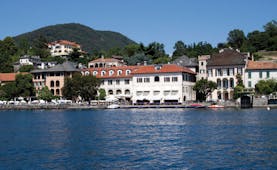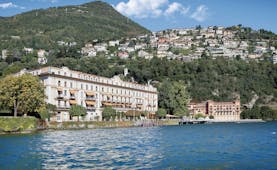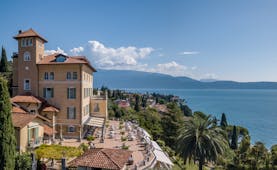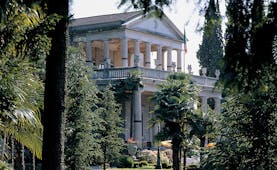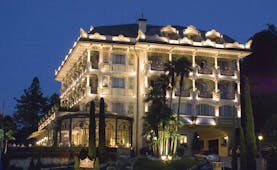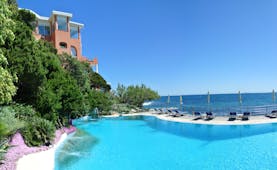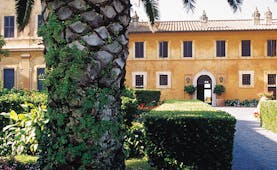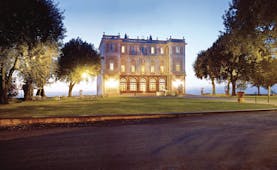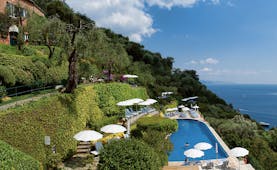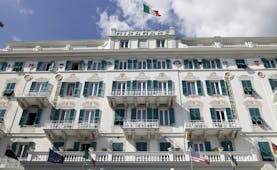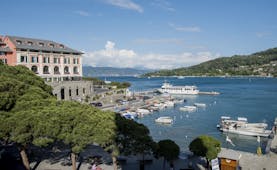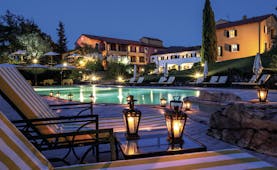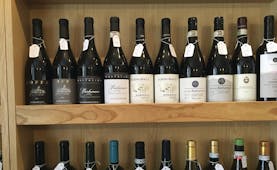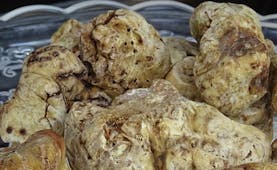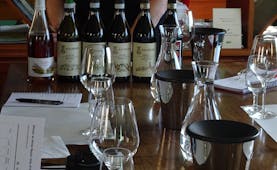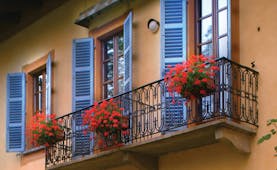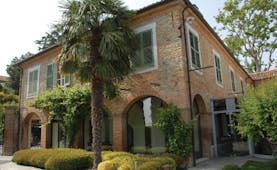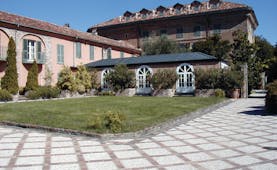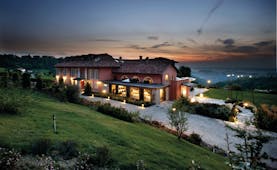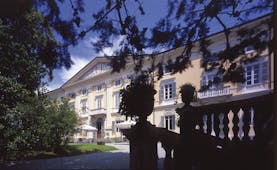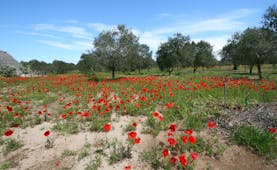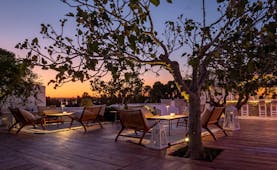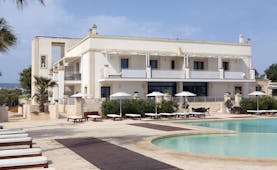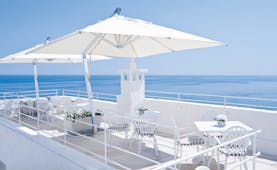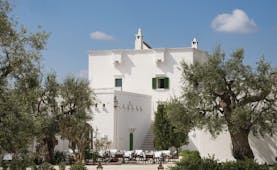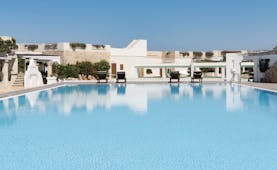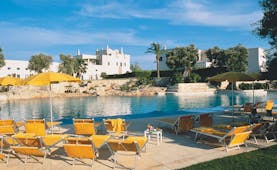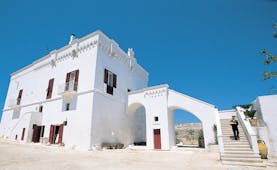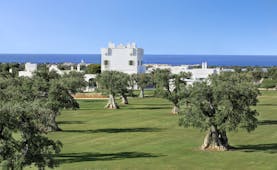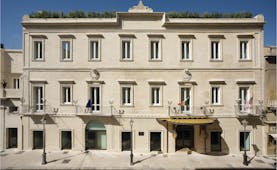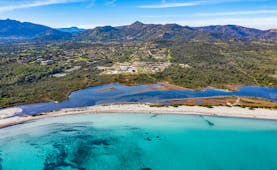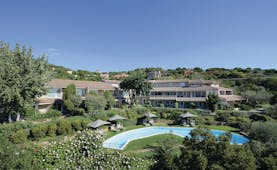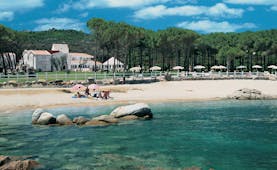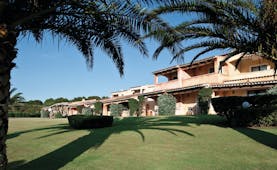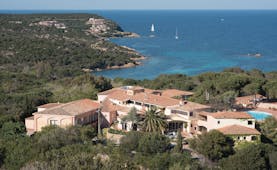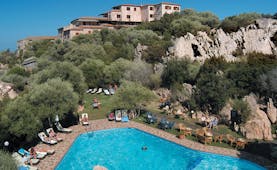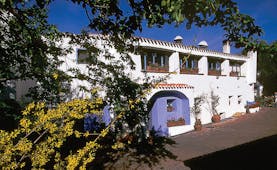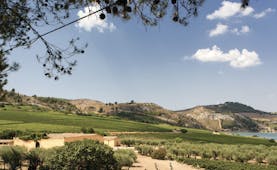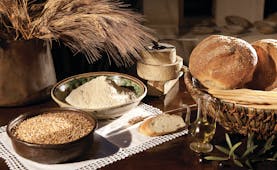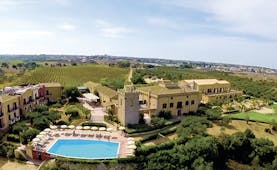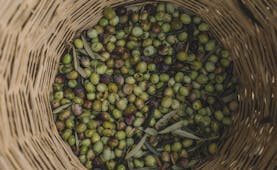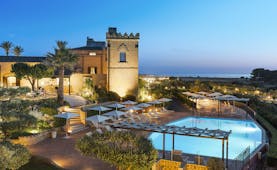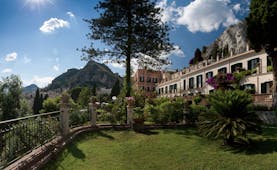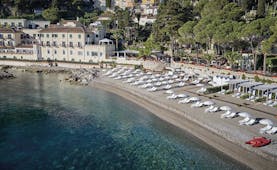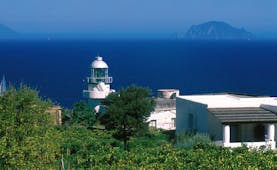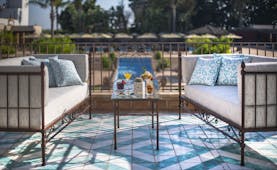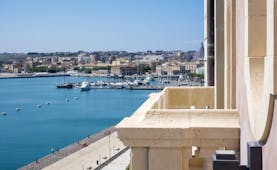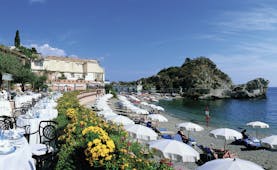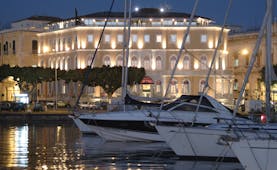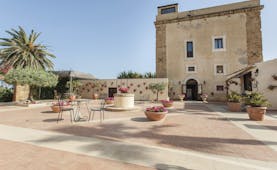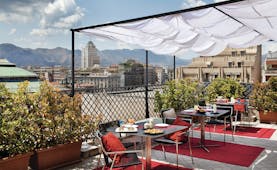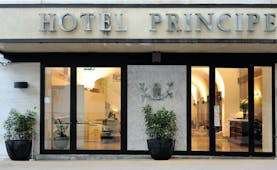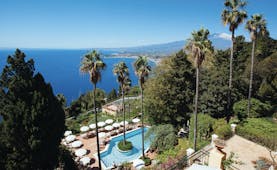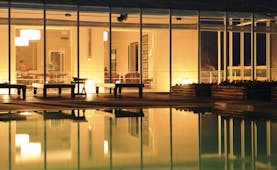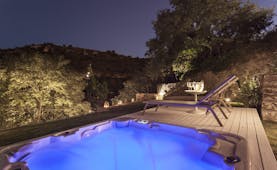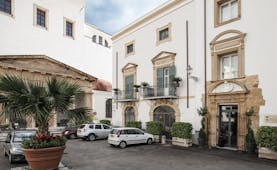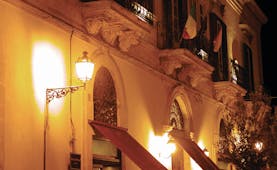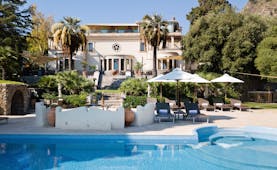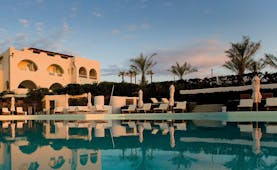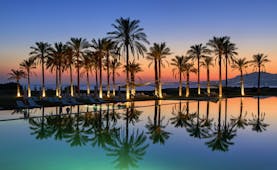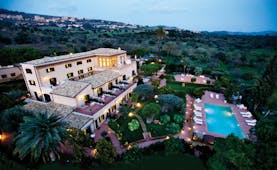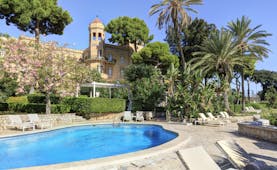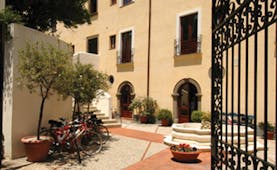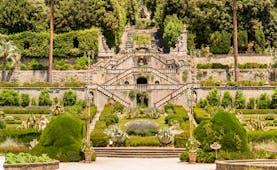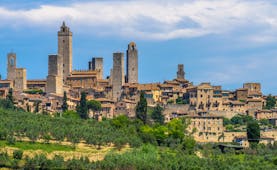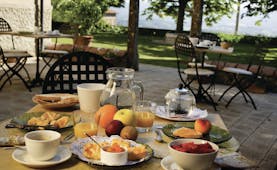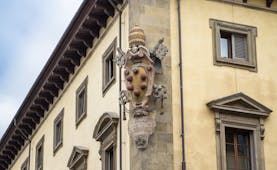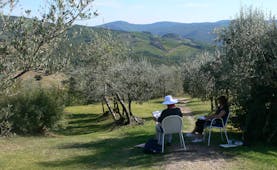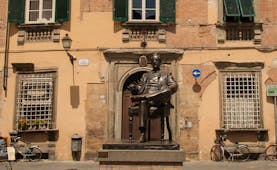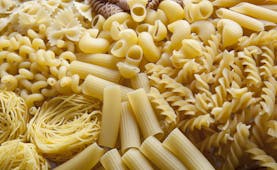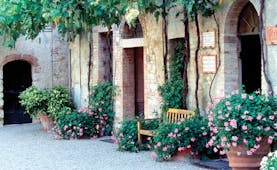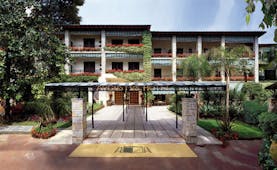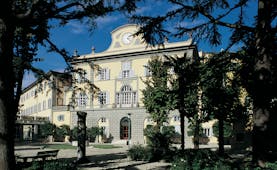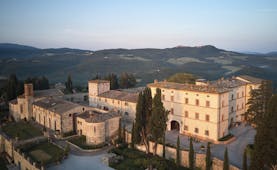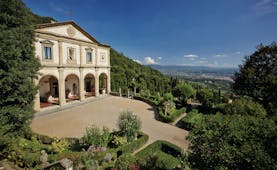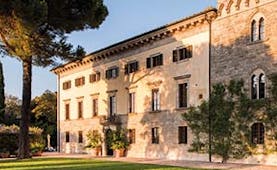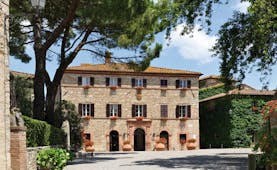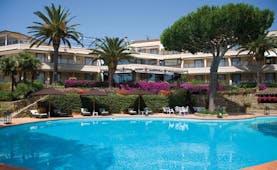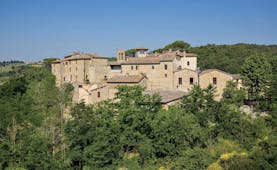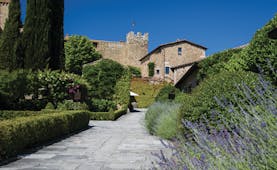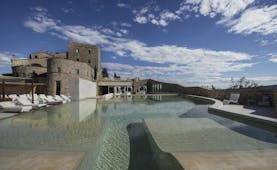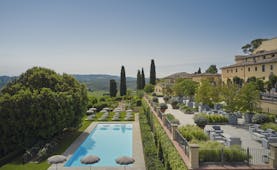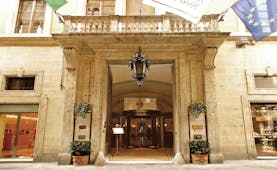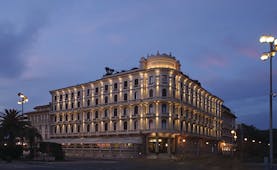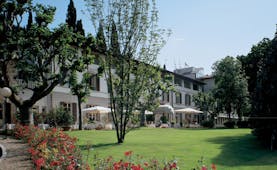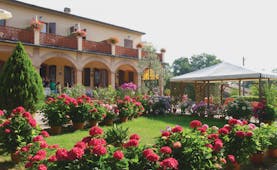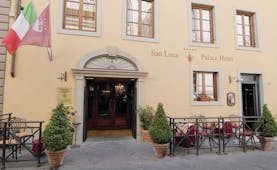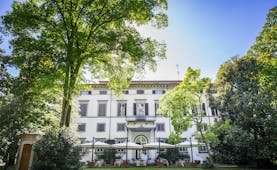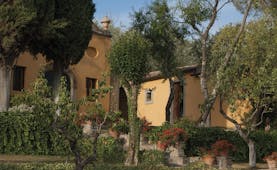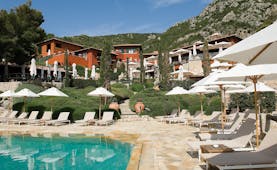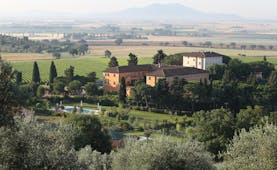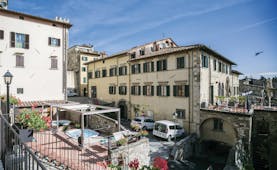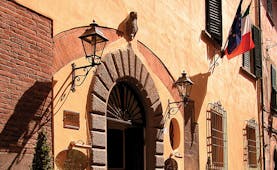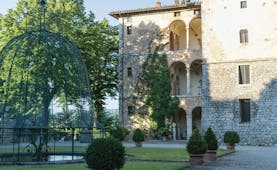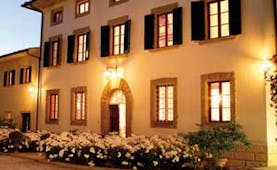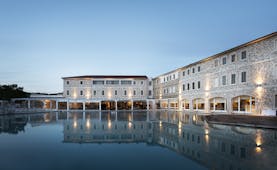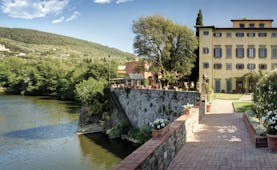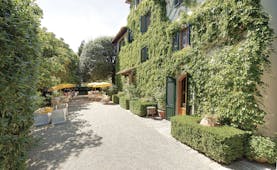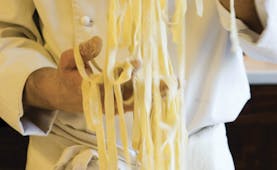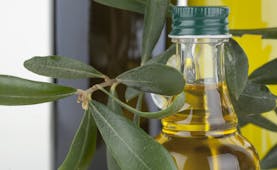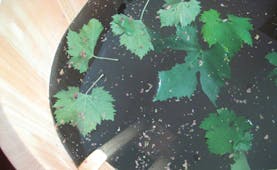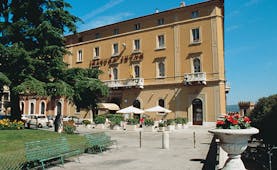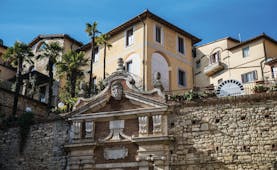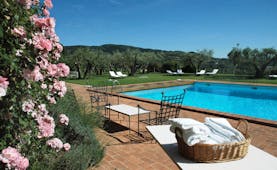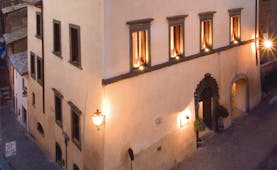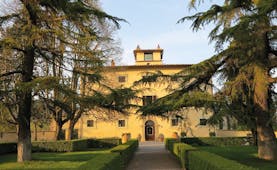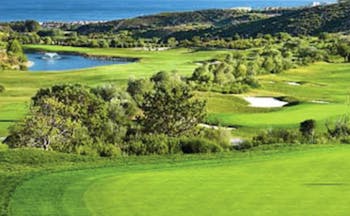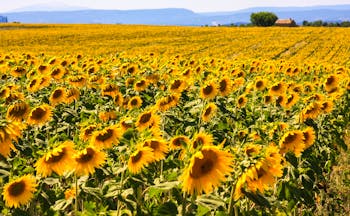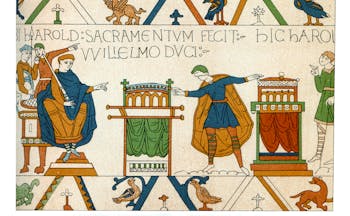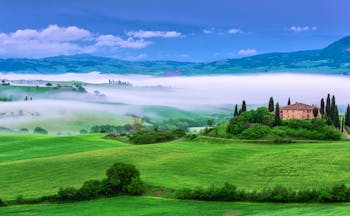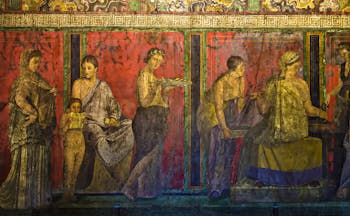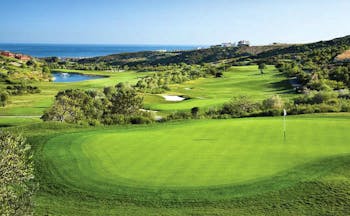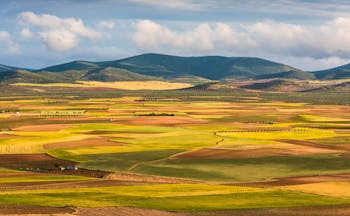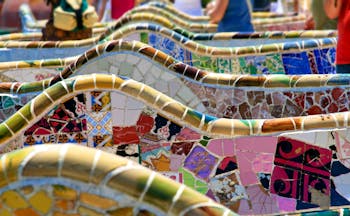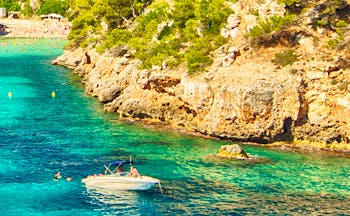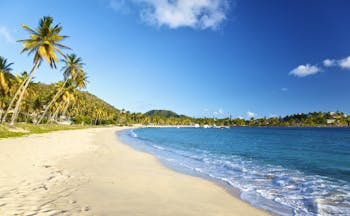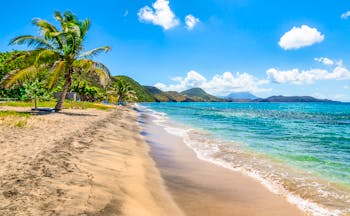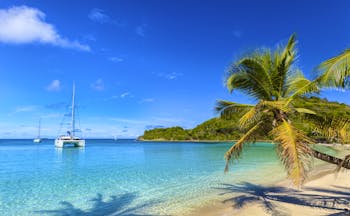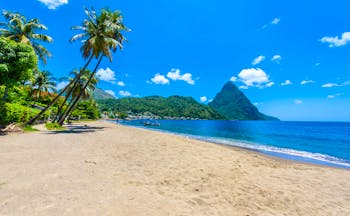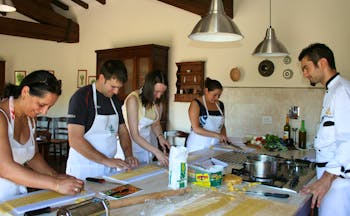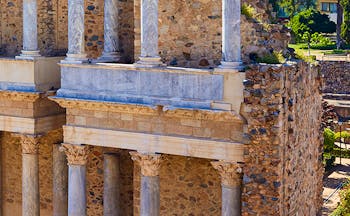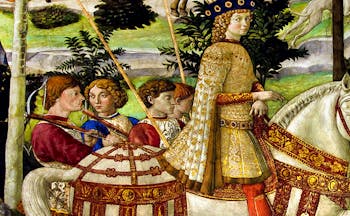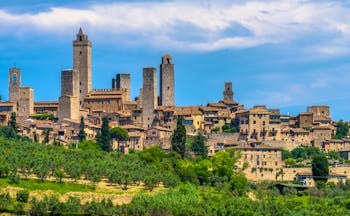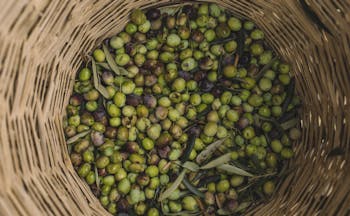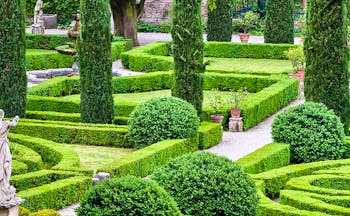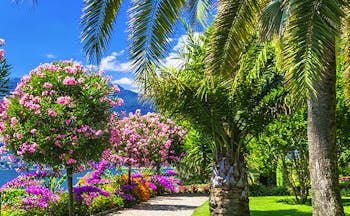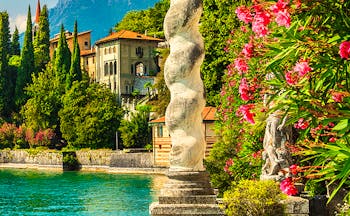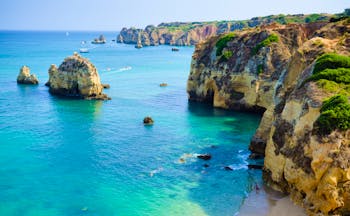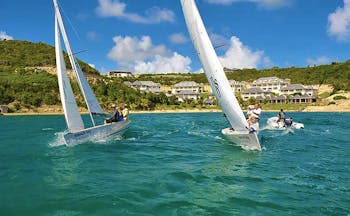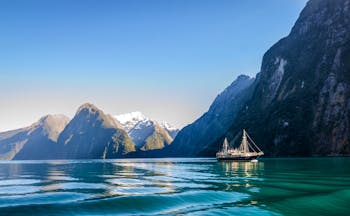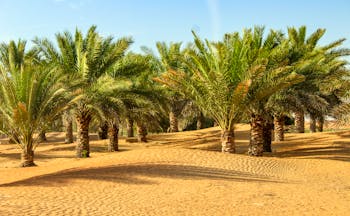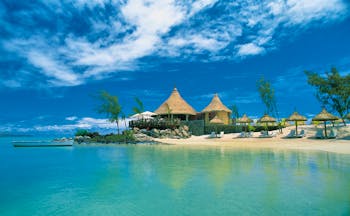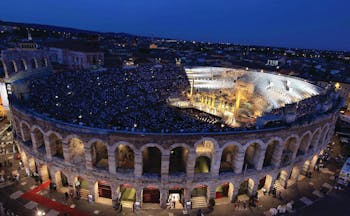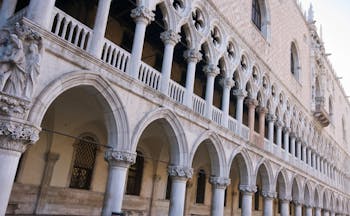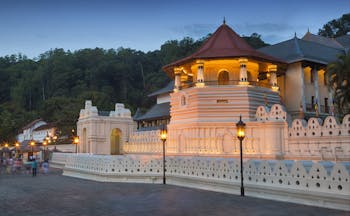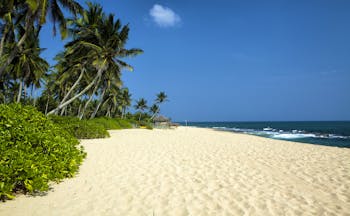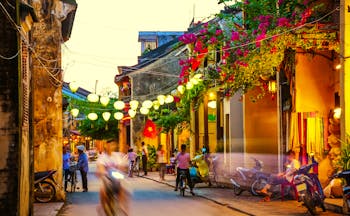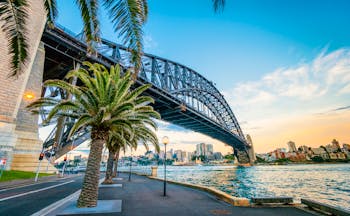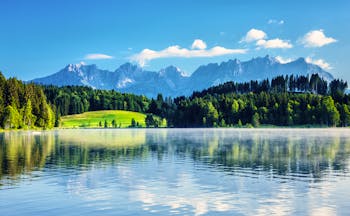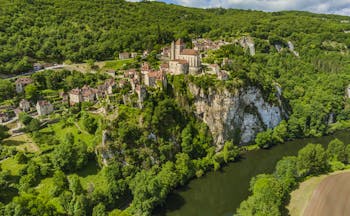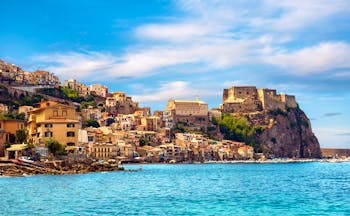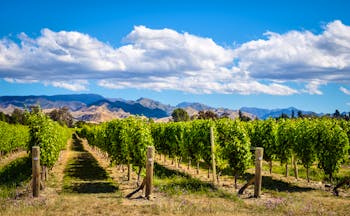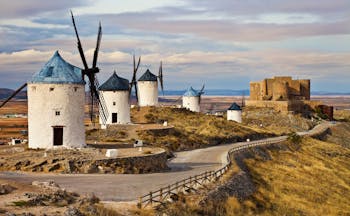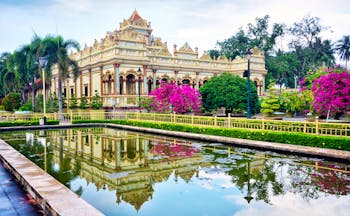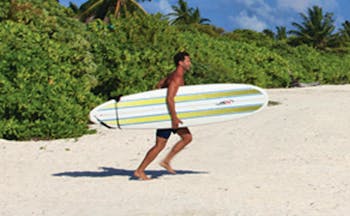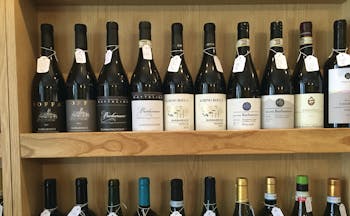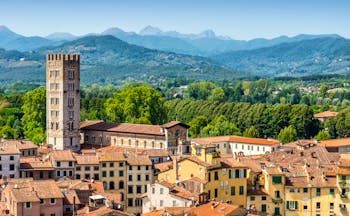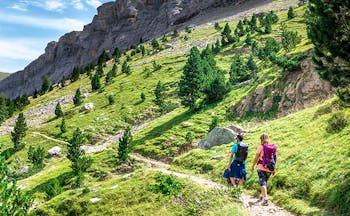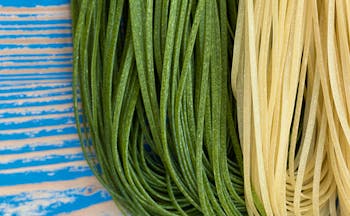Luxury fly-drive tailormade touring holiday to Palladio's Veneto
Begin this fly-drive touring holiday of the Veneto by collecting your hire-car upon arrival at Venice’s Marco Polo airport and driving west of the city to Padua, the birthplace of Andrea Palladio. It was here that Palladio trained as an apprentice to a sculptor and began to develop his Mannerist style. Though the streets of this town lack examples of Palladio’s work, it is easy, through spending time here, to see the inspiration that must have surrounded him growing up. Use your three days in Padua to explore attractions such as the Scrovegni Chapel, famous for its Giotti frescoes and the Basilica of Saint Anthony, an architectural tour de force, blending the austerity of red brick with the lavishness of Romanesque, Byzantine and Gothic architecture. From here, move on to Vicenza, a town that seems to be dedicated to the great architect, with its countless buildings designed by Palladio or his followers. The Porto Breganze is the first of Palladio’s works that is located inside the city. Unfinished, its exterior is somewhat startling; it is a tall, thin building, only wide enough for three of Palladio’s signature columns. The Teatro Olimpico is perhaps Palladio’s most famous work, and his most accomplished, just as it was his last. There are several Palladian villas scattered around this area, and we highly recommend tracking more of them down in order to see how his style changed over the years. Your final stop is in the city of Verona, setting for Shakespeare’s Romeo and Juliet. Within Verona there is one example of Palladio’s work; namely the Palazzo della Torre, whose columns and tranquil courtyard can still be seen. You drop your car back at the beginning of your stay in Verona as it is not needed in the city and then we include a transfer back to Verona airport.
Highlights
Visit the Brenta canal • Padua • Scrovegni Chapel • Basilica of St Anthony • Visit Villa Barbarigo Pizzoni Ardemani • Visit Villa Emo at Rivella • Vicenza • La Rotonda • Villa Pisani • Verona
Day by day
After arriving into Venice, the first stop on this luxury touring holiday is at the Hotel Majestic Toscanelli Padova in Padua. Though the streets of this town lack examples of Palladio’s work, it is easy, through spending time here, to see the source of his style, and the wealth of inspiration that must have surrounded him growing up. The most popular attraction in Padua is the Scrovegni Chapel, famous because of its frescoes, painted by Giotto. Its blue-painted ceiling gives the room an unusual aspect, which has intrigued visitors since it was originally painted, but it is the intricacy and skill of the frescoes that really captures imaginations. The Basilica of Saint Anthony, or Il Santo as it is known by the locals, is an architectural tour de force, blending the austerity of red brick with the lavishness of Romanesque, Byzantine, and Gothic architecture. Topped by a combination of domed and peaked roofs, the basilica, and the smaller but architecturally similar, Abbey of Santa Giustina, make a real impact on the skyline of Padua. More treasures await inside the basilica, particularly its altar. Crowned with ornate carvings and guarded by six small white statues, the altar is a centrepiece of beautifully crafted gold and stonework. Both the Scrovegni Chapel and the Basilica of Saint Anthony require advance booking of at least a few days to avoid disappointment. Outside the basilica, the Prato della Valle forms the very centre of the town. Its elliptical park has a fountain as its centre point, and is ringed by a wide oval of water, lined on either side by countless statues. This space is a very peaceful place to spend an afternoon people-watching under the arcades or in a café, reading under the shelter of the park’s trees, or popping in and out of nearby shops. The circular Orto Botanico erupts from out of the town in an explosion of greenery. These manicured gardens are perfectly organised, whilst retaining the beauty and wildness of nature. If the many art galleries and churches are not enough to stimulate you for the rest of your stay in Padua, drive southwest to Abano Terme to make the most of the abundant thermal spa facilities. Alternatively, take a boat trip from Padua to Venice along the Brenta, observing the many impressive villas that line the river banks. While in Venice, visit Palladio’s San Giorgio Maggoire, which bears his distinctive style in the traditional classical façade, or navigate the waterways separating Venice’s 117 islands on a gondola. Consider also touring one of the many museums or galleries, from the Guggenheim Museum of 20th century art, to the collection of Tintoretto’s work in the Scuola Grande di San Rocco. The Ca’Rezzanico gives its visitors the full experience of being within an 18th century palazzo, demonstrating the very height of Venetian splendour. You may also wish to head north to Treviso, the origin of Prosecco. Should you want to taste some of the local Prosecco, look out for Conegliano Valdobbiadene Prosecco; or, for other local wines, look out for Amarone di Valpolicella and Recioto di Soave, red and white respectively. These wines are known for their bitter undertones, achieved through the drying of the grapes to facilitate the fermentation of the sugar. Returning to your hotel in the evenings after dinner, take a drink in the Bistro Bar before retiring to your room.
Vicenza sits amidst the UNESCO World Heritage Site of the ‘City of Vicenza and the Palladian Villas of the Veneto.’ Many of its most interesting buildings are situated in the Old Town, which dates from Roman times. Most of the architecture of the city dates from the 16th or 17th century, though a few buildings are in the medieval or Venetian Gothic style. Before you enter the gates of the Old Town, enter the Giardino Salvi that is just outside. These rolling gardens are interspersed with rivers, on the banks of one of which sits the Loggia Valmarana, the first of Palladio’s designs that you will see in Vicenza. The temple-like building gains most of its intrigue and grace from the permanence of its reflection in the water, which seems to cast it further back to the Roman and Greek origins of its design. Moving inside the city walls, the Porto Breganze is the first of Palladio’s works that is inside the city. Unfinished, its exterior is somewhat startling; it remains as a tall, thin building, only wide enough for three of Palladio’s signature columns. Further into Vicenza you will come across the Basilica Palladiana, the updated law courts that date back to medieval times. The façade, which appears to be entirely arches and columns, was designed by Palladio towards the end of his career, and so demonstrates his refined, developed style. The Teatro Olimpico is perhaps Palladio’s most famous work, and his most accomplished, just as it was his last. The theatre was heavily influenced by the shape of ancient Roman amphitheatres, with curved, stepped seating and mythological ornamentation. Eventually, this building was finished by Palladio’s son, and Vincenzo Scamozzi, who added the permanent stage set designed for Greek tragedy that seems to recede for miles behind the stage’s central archway. The Centro Internazionale di Studi di Architettura Andrea Palladio is housed in Palladio’s Palazzo Barbaran da Porto, and provides a school for those studying Palladio’s work, as well as a museum dedicated to him. Venturing outside the city walls on foot, to the south of the city, you will come across the Villa Valmarana ai Nani. Though not designed by Palladio, it is a feat of architectural design, and continues to attract visitors because of the hundreds of statues of dwarves that top its walls, and the Tiepolo frescoes that decorate the insides. A few hundred feet along the cobbled street you will find the Villa la Rotonda, Palladio’s most famous villa. Its imposing structure is visible above the collection of short trees around it, with four identical facades, each with their own wide staircases, columns, and statues. The cupola was inspired by that of the Pantheon in Rome. North of Vicenza you can find Palladio’s first villa, the Villa Godi Malinverni. Its rustic, very traditionally Italian style is unlike Palladio’s later Mannerist work, while the Villa Godi Piovene nearby is very typically geometric in design, with mirrored staircases leading up to its columned entrance. These are only a few of the Palladian villas in this area, and we highly recommend tracking more of them down, to see, if nothing else, how his style changed over the years. While in Vicenza, it is worth also visiting the Santa Corona Church, as it is home to the important religious works and portraits of Giovanni Bellini and Paolo Veronese.
Your final stop is in the charming city of Verona.Touch the statue of Juliet in the courtyard of Casa di Giulietta to receive luck in love, or descend into the crypt of the Basilica of San Zeno Maggiore to see the setting for the young lovers’ wedding. Pass under the Arco della Costa, from which hangs a whale bone that will reputedly fall only when someone righteous walks underneath. Do not neglect the city’s many galleries and museums before viewing the city from up high on the belvedere of the Giardino Giusti. Within Verona there is just one example of Palladio’s work; namely the Palazzo della Torre. Not much of this building remains as it was left unfinished and suffered damage in the Second World War. Its columns and tranquil courtyard can still be seen.
Today you are at leisure until you are collected for the private car transfer from the hotel to Verona airport.
Absolutely loved it. Bespoke sense of the trip is very good. Very pleasant and efficient service.Mrs H, Sep 2023
Holiday price guide Prices start at £1,740 per person based on two people sharing a double or twin room.
Holiday Code ITFD06
Call us on 01392 441245
Luxury fly-drive tailormade touring holiday to Palladio's Veneto
After arriving into Venice, the first stop on this luxury touring holiday is at the Hotel Majestic Toscanelli Padova in Padua. Though the streets of this town lack examples of Palladio’s work, it is easy, through spending time here, to see the source of his style, and the wealth of inspiration that must have surrounded him growing up. The most popular attraction in Padua is the Scrovegni Chapel, famous because of its frescoes, painted by Giotto. Its blue-painted ceiling gives the room an unusual aspect, which has intrigued visitors since it was originally painted, but it is the intricacy and skill of the frescoes that really captures imaginations. The Basilica of Saint Anthony, or Il Santo as it is known by the locals, is an architectural tour de force, blending the austerity of red brick with the lavishness of Romanesque, Byzantine, and Gothic architecture. Topped by a combination of domed and peaked roofs, the basilica, and the smaller but architecturally similar, Abbey of Santa Giustina, make a real impact on the skyline of Padua. More treasures await inside the basilica, particularly its altar. Crowned with ornate carvings and guarded by six small white statues, the altar is a centrepiece of beautifully crafted gold and stonework. Both the Scrovegni Chapel and the Basilica of Saint Anthony require advance booking of at least a few days to avoid disappointment. Outside the basilica, the Prato della Valle forms the very centre of the town. Its elliptical park has a fountain as its centre point, and is ringed by a wide oval of water, lined on either side by countless statues. This space is a very peaceful place to spend an afternoon people-watching under the arcades or in a café, reading under the shelter of the park’s trees, or popping in and out of nearby shops. The circular Orto Botanico erupts from out of the town in an explosion of greenery. These manicured gardens are perfectly organised, whilst retaining the beauty and wildness of nature. If the many art galleries and churches are not enough to stimulate you for the rest of your stay in Padua, drive southwest to Abano Terme to make the most of the abundant thermal spa facilities. Alternatively, take a boat trip from Padua to Venice along the Brenta, observing the many impressive villas that line the river banks. While in Venice, visit Palladio’s San Giorgio Maggoire, which bears his distinctive style in the traditional classical façade, or navigate the waterways separating Venice’s 117 islands on a gondola. Consider also touring one of the many museums or galleries, from the Guggenheim Museum of 20th century art, to the collection of Tintoretto’s work in the Scuola Grande di San Rocco. The Ca’Rezzanico gives its visitors the full experience of being within an 18th century palazzo, demonstrating the very height of Venetian splendour. You may also wish to head north to Treviso, the origin of Prosecco. Should you want to taste some of the local Prosecco, look out for Conegliano Valdobbiadene Prosecco; or, for other local wines, look out for Amarone di Valpolicella and Recioto di Soave, red and white respectively. These wines are known for their bitter undertones, achieved through the drying of the grapes to facilitate the fermentation of the sugar. Returning to your hotel in the evenings after dinner, take a drink in the Bistro Bar before retiring to your room.
Vicenza sits amidst the UNESCO World Heritage Site of the ‘City of Vicenza and the Palladian Villas of the Veneto.’ Many of its most interesting buildings are situated in the Old Town, which dates from Roman times. Most of the architecture of the city dates from the 16th or 17th century, though a few buildings are in the medieval or Venetian Gothic style. Before you enter the gates of the Old Town, enter the Giardino Salvi that is just outside. These rolling gardens are interspersed with rivers, on the banks of one of which sits the Loggia Valmarana, the first of Palladio’s designs that you will see in Vicenza. The temple-like building gains most of its intrigue and grace from the permanence of its reflection in the water, which seems to cast it further back to the Roman and Greek origins of its design. Moving inside the city walls, the Porto Breganze is the first of Palladio’s works that is inside the city. Unfinished, its exterior is somewhat startling; it remains as a tall, thin building, only wide enough for three of Palladio’s signature columns. Further into Vicenza you will come across the Basilica Palladiana, the updated law courts that date back to medieval times. The façade, which appears to be entirely arches and columns, was designed by Palladio towards the end of his career, and so demonstrates his refined, developed style. The Teatro Olimpico is perhaps Palladio’s most famous work, and his most accomplished, just as it was his last. The theatre was heavily influenced by the shape of ancient Roman amphitheatres, with curved, stepped seating and mythological ornamentation. Eventually, this building was finished by Palladio’s son, and Vincenzo Scamozzi, who added the permanent stage set designed for Greek tragedy that seems to recede for miles behind the stage’s central archway. The Centro Internazionale di Studi di Architettura Andrea Palladio is housed in Palladio’s Palazzo Barbaran da Porto, and provides a school for those studying Palladio’s work, as well as a museum dedicated to him. Venturing outside the city walls on foot, to the south of the city, you will come across the Villa Valmarana ai Nani. Though not designed by Palladio, it is a feat of architectural design, and continues to attract visitors because of the hundreds of statues of dwarves that top its walls, and the Tiepolo frescoes that decorate the insides. A few hundred feet along the cobbled street you will find the Villa la Rotonda, Palladio’s most famous villa. Its imposing structure is visible above the collection of short trees around it, with four identical facades, each with their own wide staircases, columns, and statues. The cupola was inspired by that of the Pantheon in Rome. North of Vicenza you can find Palladio’s first villa, the Villa Godi Malinverni. Its rustic, very traditionally Italian style is unlike Palladio’s later Mannerist work, while the Villa Godi Piovene nearby is very typically geometric in design, with mirrored staircases leading up to its columned entrance. These are only a few of the Palladian villas in this area, and we highly recommend tracking more of them down, to see, if nothing else, how his style changed over the years. While in Vicenza, it is worth also visiting the Santa Corona Church, as it is home to the important religious works and portraits of Giovanni Bellini and Paolo Veronese.
Your final stop is in the charming city of Verona.Touch the statue of Juliet in the courtyard of Casa di Giulietta to receive luck in love, or descend into the crypt of the Basilica of San Zeno Maggiore to see the setting for the young lovers’ wedding. Pass under the Arco della Costa, from which hangs a whale bone that will reputedly fall only when someone righteous walks underneath. Do not neglect the city’s many galleries and museums before viewing the city from up high on the belvedere of the Giardino Giusti. Within Verona there is just one example of Palladio’s work; namely the Palazzo della Torre. Not much of this building remains as it was left unfinished and suffered damage in the Second World War. Its columns and tranquil courtyard can still be seen.
Today you are at leisure until you are collected for the private car transfer from the hotel to Verona airport.
Absolutely loved it. Bespoke sense of the trip is very good. Very pleasant and efficient service.Mrs H, Sep 2023
Holiday price guide Prices start at £1,740 per person based on two people sharing a double or twin room.
Holiday Code ITFD06
Our prices include
● British Airways flights from London to Venice and from Verona to London
● Hire of a Group B car for six days
● Private transfer from Verona hotel to Verona airport
● 3 nights’ bed and breakfast in a Standard double room at the Hotel Majestic Toscanelli Padova, Padua
● 3 nights’ bed and breakfast in a Classic double at the Hotel Villa Michelangelo, Vicenza
● 3 nights’ bed and breakfast in a Classic double at the Hotel Indigo - Grand Hotel des Arts in Verona
● Concierge service and Expressions Holidays regional helpful hints
Our prices do not include
● Early check-in or late check-out at any hotels (although we can arrange this on request at additional cost)
● Any other services not mentioned above, such as transfers and meals except breakfast at hotels
● Personal holiday insurance. This is essential and cover should be in place from when you book the holiday.
● Local tourist tax, usually between Euros 1 and 3 per person per night, and payable locally to the hotel
Additional information
Driving times for this touring holiday
Venice Airport to Padova 50 minutes
Padova to Vicenza 40 minutes
Vicenza to Verona 1 hour
Call us on 01392 441245
Luxury fly-drive tailormade touring holiday to Palladio's Veneto
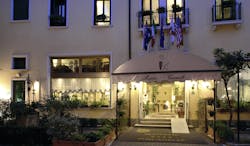
Hotel Majestic Toscanelli is a 4-star hotel in an unrivalled location in central Old Town. Comfortable accommodation and a cosy bistro-bar in an authentic Italian setting make it an ideal spot to recuperate after enjoying the delights of Padua.
Standard double room
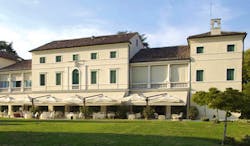
Villa Michelangelo is an elegant, historic 4-star boutique hotel near the fascinating city of Vicenza. The hotel emphasises the beauty of the countryside surroundings, with breath-taking views of the Berici Hills, alongside gourmet cuisine for a restorative retreat.
Classic double room
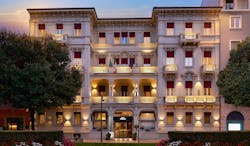
The Hotel Indigo Verona - Grand Hotel des Arts is a stylish grand hotel with just 62 rooms on a boulevard about 9 minutes’ walk from the Arena di Verona.
Classic double room
Absolutely loved it. Bespoke sense of the trip is very good. Very pleasant and efficient service.Mrs H, Sep 2023
Holiday price guide Prices start at £1,740 per person based on two people sharing a double or twin room.
Holiday Code ITFD06
Call us on 01392 441245
Luxury fly-drive tailormade touring holiday to Palladio's Veneto
About Veneto
An Expressions tailor-made holiday to Veneto incorporates the beauty, culture and heritage of this popular Italian region. Like its northern neighbour, Friuli, Veneto is cradled by the Dolomites to the north, the Venetian planes to the south, and the Adriatic to the east, giving it an almost unsurpassed scenic, cultural and architectural variety. Unlike Friuli, however, Veneto is one of the most visited regions in Italy, with Venice the undoubted jewel in its preposterously beautiful crown. While most people race through Veneto in their rush to get to Venice, the region is a veritable treasure trove of beautiful towns, many of them blessedly devoid of tourist crowds, who are elsewhere on the Venetian lagoon. Of these, Padua is a gem of a cobbled university town littered with Giotoa frescoes, Verona, home to Romeo and Juliet, is one of the prettiest ancient cities in Italy, Vicenza is the stunning ‘laboratory’ of Andrea Palladio, one of the most influential architects in history, and in Treviso, Veneto has a wonderful, scaled down version of Venice, complete with beautiful canals. That said, with flights into Venice, you could happily spend every holiday for the rest of your life in Veneto's celebrated capital. A staggeringly spectacular town, it does of course get busy in summer, but with no cars in the city centre, Byron's ‘fair city of the heart' has a peaceful, festive air even in high season, with a string of quieter, but equally enchanting, fascinating islands scattered around the lagoon, and an excellent network of ferries and vaporetti taking you there.
Highlights of Veneto
Veneto has a wealth of culture and interest to immerse yourself in, including: Venice carnival, an extravagant pageant making the city even more impossibly beautiful than normal; the islands of the lagoon, including Murano, famous for its glass-makers, whose workshops you can visit, and Burano, with its wonderfully colourful facades; Treviso, a scaled down Venice, great escaping the high-season crowds; Soave, a fairy-tale castle town famous for its wines; Albano, a classic 19th century thermal town; Lake Garda, flanked by lemon and olive groves, with the Dolomites reflected in its lakes, and 7,227ft Monte Baldo behind it, which you can reach by cable car; tiny village of Marostica, which stages a human chess game with ‘pieces' dressed in Renaissance costumes; Valpollicella, a lush valley strewn with family wineries; Padua and its Giotto frescoes; the Romanesque abbey of San Pietro di Foletto in Follina; numerous Palladian villas, including Bararao, Villa Emo, La Rotonda, Villa Godi and Villa Valmarana; Cima's masterpiece of an altarpiece in Conegliano cathedral; the August Palio in Feltre, with medieval games, horse racing and celebrations; Treviso's festival of dance, poetry and music in August; birdwatching on the Venice lagoon and Po delta; local cuisine, including Spaghetti alle Vongole and Prosecco from Conegliano; the fishing port of Chioggia.

